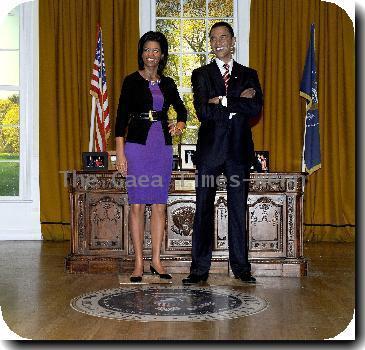Stocks tumble on disappointing jobs, durable goods reports; Qualcomm forecast hits tech stocks
By Stephen Bernard, APThursday, January 28, 2010
Stocks drop as jobs, manufacturing data disappoint
NEW YORK — Stocks fell sharply Thursday as investors absorbed more evidence of a troubled economy.
The Dow Jones industrial average skidded 115 points following disappointing reports on employment and orders for big-ticket manufactured goods. A lower forecast from technology maker Qualcomm Inc. dragged the Nasdaq composite index lower. Drops in Motorola Inc. and Apple Inc. also hurt tech stocks.
The market also fell in response to a report from Standard & Poor’s that said it no longer considers Britain among the “most stable and low-risk” banking systems. The report drove the dollar higher as investors sought safety. That sent some commodities prices lower, hurting materials stocks.
The S&P report was yet another worry for investors who have been focused on politics, not the economy. Stocks have fallen five of the past eight days as concern builds that a fragile economic recovery could be derailed by missteps in Washington. The questions have some analysts saying that a 10-month surge of 62.2 percent in the Standard & Poor’s 500 index isn’t warranted.
President Barack Obama’s plan to overhaul banking regulations and restrict trading at large financial institutions spooked the market during the past week. The possibility Federal Reserve Board chairman Ben Bernanke wouldn’t be confirmed for a second term also had investors on edge, though those worries have subsided as the vote neared.
“Our full-contact politics is really beginning to affect the markets as it’s migrating into subjects that investors care deeply about like who is our Fed chairman going to be,” said Lawrence Creatura, portfolio manager at Federated Clover Investment Advisors. “That wasn’t uncertain two weeks ago. Now it is.”
The Senate scheduled a vote Thursday to determine whether Bernanke can win approval from at least 60 senators to defeat a filibuster aimed at preventing his reappointment. His term ends Sunday. Senate leaders from both parties said he would be reappointed.
During his State of the Union address Wednesday evening, Obama avoided talking about the banking overhaul plan. Uncertainty over details of how that plan might be enacted are adding to investors’ uncertainty.
Concerns about economy are also creeping back to the forefront. The Fed said Wednesday it would keep interest rates at historic lows and that the economy was showing signs of improvement. That helped stocks reverse a slide to end higher.
The enthusiasm faded Thursday after the Labor Department said weekly jobless claims fell by less than expected last week and the Commerce Department reported durable goods orders didn’t rise as fast as anticipated last month. The reports provided reminders that the economic recovery is likely to be slow.
In early afternoon trading, the Dow fell 116.31, or 1.1 percent, to 10,119.85. The Standard & Poor’s 500 index fell 12.59, or 1.2 percent, to 1,084.91, while the Nasdaq fell 45.38, or 2 percent, to 2,176.03.
Bond prices were mixed. The yield on the benchmark 10-year Treasury note, which moves opposite its price, rose to 3.67 percent from 3.66 percent late Wednesday.
The dollar rose against other major currencies, while gold fell.
Crude oil fell 9 cents to $73.58 per barrel on the New York Mercantile Exchange.
Tech shares slid after Qualcomm, which makes chips and other technologies used in cell phones, fell $6.39, or 13.5 percent, to $40.81 after it said it expects a “subdued” rebound in the economy and reduced its full-year sales forecast.
Motorola fell 85 cents, or 11.5 percent, to $6.55 after its profit forecast fell short of expectations.
Apple Inc., whose stock has more than doubled in the past year, fell $8.32, or 4 percent, to $199.56 as investors showed doubts about a new tablet-style computer that looks like a large iPhone. The stock closed higher Wednesday after making the announcement.
In economic news, new requests for unemployment benefits fell modestly, dropping to 470,000 last week. Economists polled by Thomson Reuters had been expecting a bigger drop to 450,000 new unemployment filings.
Orders to U.S. factories for big-ticket manufactured goods rose less than expected in December, increasing just 0.3 percent. Economists had been expecting a 2 percent increase in orders.
For all of 2009, durable goods orders — items expected to last at least three years — tumbled 20.2 percent. It was the largest drop on records that go back to 1992.
On Friday, the government releases its initial reading on fourth-quarter gross domestic product. The GDP number, which measures the entire country’s economic output, likely rose at an annualized rate of 4.5 percent during the final three months of 2009.
About four stocks fell for every one that rose on the New York Stock Exchange, where volume came to 507.1 million shares.
The Russell 2000 index of smaller companies fell 10.84, or 1.8 percent, to 607.54.
Britain’s FTSE 100 fell 1.4 percent, Germany’s DAX index dropped 1.8 percent, and France’s CAC-40 fell 1.9 percent. Earlier, Japan’s Nikkei stock average rose 1.6 percent.
Tags: Barack Obama, Careers, Commodity Markets, Economic Outlook, Job Trends, New York, North America, Prices, Products And Services, Union, United States



